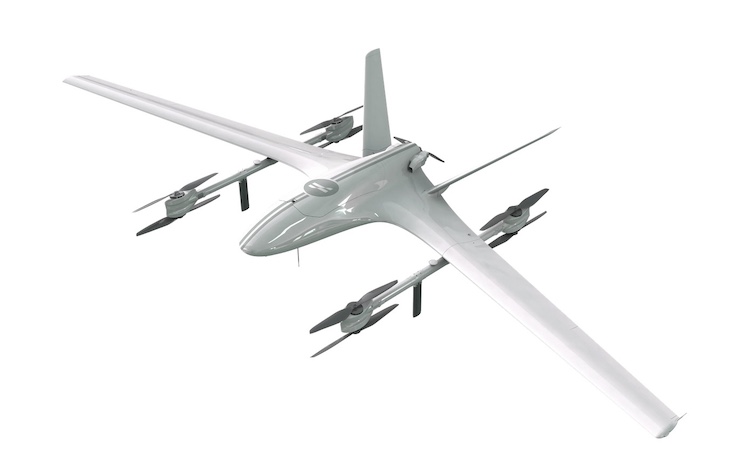
© Skyways.com
In 2017, Charles Acknin, Anurag Sabbarwal, and Chris Craighill founded Skyways in Austin, TX. With a strong background in robotics and aerospace, the trio came together with a shared vision: to revolutionize transportation by removing humans from high-risk logistics operations and delivering critical payloads faster and safer through drone technology. From the start, Skyways used a novel approach to ensure they were able to set themselves apart within a rapidly expanding drone industry.
“Our approach is different from most companies, as we self-fund building and flying full-scale aircraft early during development so prospective customers can see real capability, not a slide deck,” Mr. Acknin, who now serves as the company’s CEO, explains. “We’ve figured out a way to do it rapidly and at low cost.” Skyways keeps development costs low while moving quickly by embracing a lean, hands-on approach to engineering.
Instead of relying on lengthy simulations or theoretical models, the team builds and flies full-scale prototypes early in the design process, allowing them to catch and correct issues in real-world conditions, saving both time and money. To further save costs, Skyways integrates off-the-shelf components where possible, balancing custom performance with affordable scalability.
The backbone of Skyways’ platform is the V2, a hybrid VTOL (Vertical Takeoff and Landing) drone. The drone has a maximum flight time of 8 hours due to the combined power supply of onboard battery packs and a fuel tank that uses JP-5 or Jet A-1 fuel. The batteries are used only during takeoff, while the fuel-supported combustion engine ensures endurance for long-range flights upwards of 450 miles. The V2’s wings are foldable, with a total wingspan of approximately 18 ft 6 in. Four pairs of coaxial electric motors are used during takeoff and landing, while the wings allow the drone to glide and conserve energy during flight.
The V2 also has a 1 ft³ cargo bay that can transport small essentials like tools and medical supplies. With no fuel and an empty cargo bay, the drone weighs 125 lbs and has a maximum takeoff weight of 155 lbs. In one continuous day, Skyways tested the drone to complete 11 consecutive resupply flights totaling 9.4 hours and 466 nautical miles, all without any human intervention. Impressively, the average turnaround time between missions was just eight minutes, showcasing the system’s autonomy and efficiency. Building upon the lessons learned from the V2 drone, Skyways is in the process of bringing its latest iteration, the V3, to full production scale.
The V3 drone expands on the proven architecture and autonomy system of the V2, increasing its capabilities to support a 100 lb payload, fly over 1,000 miles, and remain airborne for more than 20 hours. Recently, Skyways announced that they had received government funding that would allow them to rapidly finalize production on the V3. Skyways is one of the latest recipients of a contract with the United States Air Force (USAF) under the department’s AFWERX (a stylized form of “Air Force Works”) program. AFWERX was launched in 2017 by the Air Force Research Laboratory (AFRL) to accelerate cutting-edge technology by private, academic, and government developers for military applications.
AFWERX has an annual budget of $1.4 billion, which has been distributed to more than 300 developers, amounting to thousands of contracts since its inception. In June 2025, AFWERX awarded Skyways $37 million. “With the funding,” Skyways stated in a press release, “Skyways will continue building its autonomy stack, finalize the V3 production design, and ramp up for mass manufacturing, targeting the deployment of thousands of V3 aircraft across defense and commercial applications.”
Meanwhile, Brigadier General Jason Bartolomei, AFRL Commander, spoke about the importance of AFWERX’s mission to help propel developers like Skyways. “We’re already in a serious science and technology competition with some pretty competitive people on the world market,” he said. “Our job is to win that fight, and we can’t do it without working together with the innovation ecosystem and without AFWERX doing what it does best.”
As Skyways moves toward scaling production of the V3, the company exemplifies how a lean, hands-on approach to engineering can accelerate real-world impact. With the backing of AFWERX and a growing portfolio of autonomous aircraft, Skyways is not only advancing the frontier of drone logistics but also reshaping how the military and commercial sectors think about speed, safety, and scalability in unmanned delivery. Its next chapter could mark a turning point for cargo transport in both warzones and beyond.
|